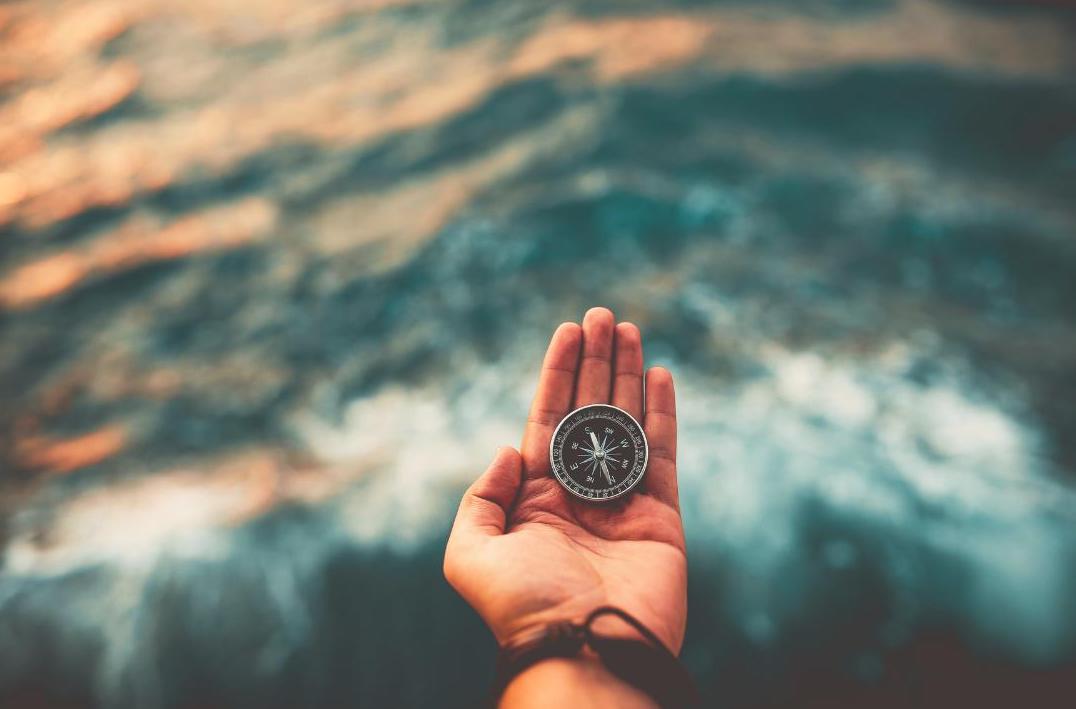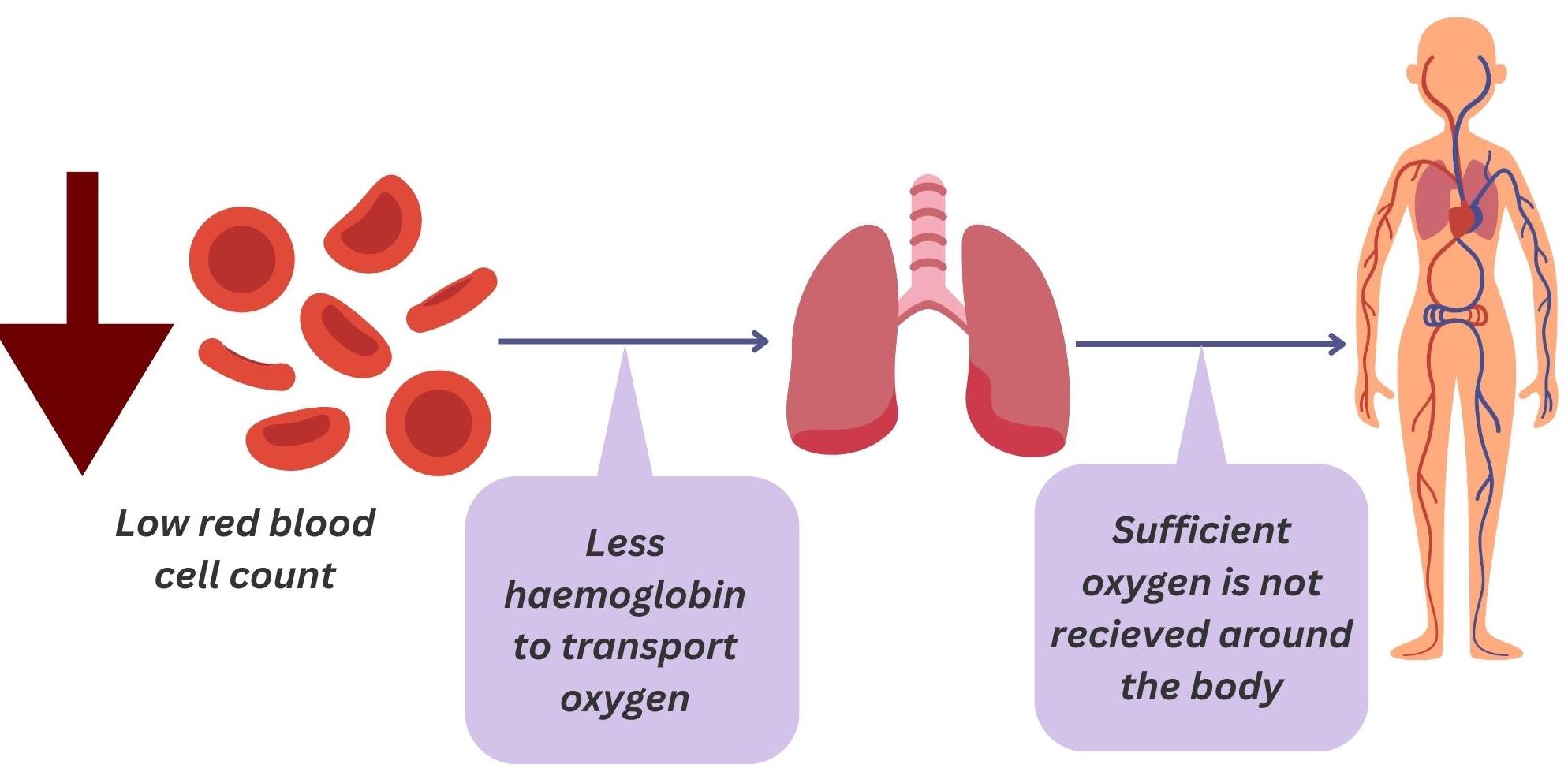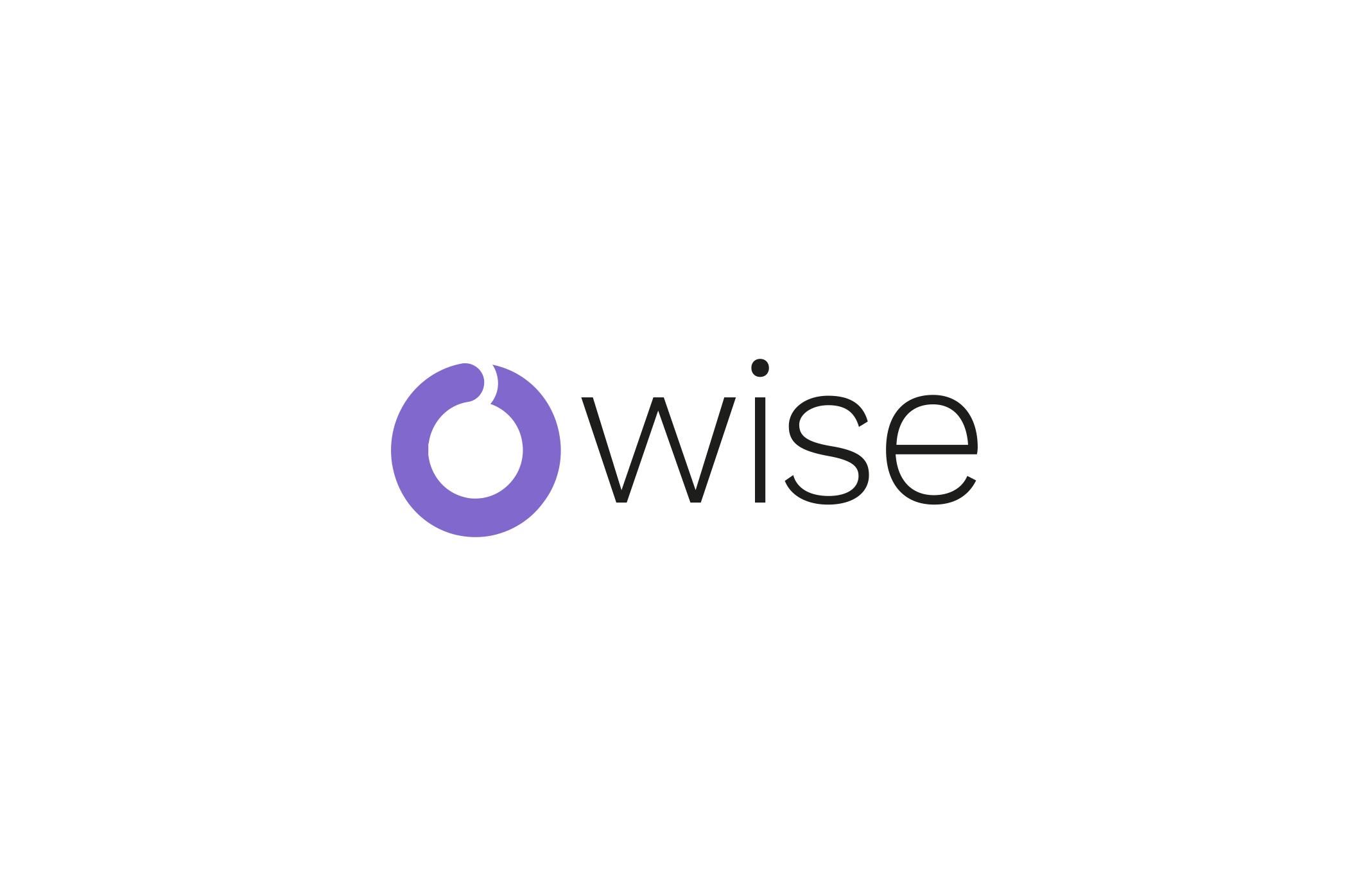
Navigating chemotherapy treatment as a breast cancer patient can be challenging both physically and emotionally.
In this blog we will look at important aspects to keep in mind during chemotherapy treatment such as an increased risk of infection, anaemia and the potential impact on sex and intimacy, diet-related changes and exercise.
Understanding these topics can help to empower you, to make informed decisions, and to take proactive steps towards managing your health and well-being during your chemotherapy treatment.
Chemotherapy and Infection
What is an infection?
Before we go deeper into chemotherapy and the risk of infection, it is important to understand what an infection is and how your body protects itself from infections. An infection is caused by germs (like bacteria or viruses) that get inside the body and start to multiply1,2. Infection doesn’t always lead to disease. Disease occurs when cells in your body are damaged because of the infection and this then triggers symptoms of illness.
How does the body protect itself from germs?
The skin is the first barrier that is important to protect your body from infections3,5. Chemotherapy can damage your skin cells, making it easier for germs to get in your body. When germs enter your body, your immune system takes over the task to protect your body5. The immune system is designed to help protect your body from germs. Your white blood cells, antibodies and other mechanisms will fight the foreign invader inside your body. Interestingly, a lot of the uncomfortable things you feel when you are sick, such as fever and tiredness, are signs of your immune system working hard to kick out the invaders from your body1.
Why does chemotherapy increase the risk of infection?
Chemotherapy can affect various parts of the immune system by decreasing the amount of white blood cells. For example, chemotherapy can lower a type of white blood cells called neutrophils. You may of heard of this being refered to as neutropenia. When your white blood cell count is low, your immune system becomes weaker and this can make you more vulnerable to infections4,5. Next to this, other factors like poor nutrition, lack of sleep and stress can also weaken the immune system making you more susceptible for infections.
How to decrease the risk of infection
It is important to talk to your health care team about ways to prevent infection. Here are some tips:
- Wash your hands often and well. Make sure to wash your hands with soap and water before, during and after cooking food, before you eat and after going to the bathroom.
- Stay away from people who are sick or have a cold. Ask your family and friends to reschedule a visit if they have any symptoms of illness. Avoid sharing glasses or towels.
- Eat well and stay hydrated. Cells need nutrients to grow and function well and a lack of vitamins, minerals, proteins and calories can weaken your immune system. Avoid raw or undercooked meat as they can contain potentially dangerous bacteria.
- Keep your mouth healthy. Brush your teeth at least 2 times a day using a soft toothbrush and try to stay away from things that can irritate your mouth like tobacco, alcohol, spicy food, crunchy foods and acidic drinks (e.g. orange and grapefruit juice)
- Protect your skin from cuts, scrapes and injury as much as possible. Some examples: use an electric razor instead of a blade when shaving, wear gloves and long sleeves while gardening, do not squeeze or scratch pimples and skip your mani- or pedicure to prevent accidental tears or cuts.
- Ask questions to your healthcare team, for example:
- When am I at increased risk?
- How will I know if I have an infection?
- What should I do if I think I have an infection?
If you think you might have symptoms of an infection, like fever, cough, sore throat, redness or swelling, diarrhoea or vomiting, do not hesitate and call your doctor.
Chemotherapy and growth factors
What are growth factors?
Growth factors are proteins that can be used with or after chemotherapy to help your white blood cells recover. Chemotherapy can decrease the amount of white blood cells in your body, which as we now know can make you more susceptible to infection. The number of white blood cells tend to recover naturally between the cycles of chemotherapy, but some people could use a little help increasing their white blood cell count6.
Granulocyte colony stimulating factor (G-CSF) is a type of growth factor. It helps the bone marrow to make white blood cells, which reduces the risk of infection after certain cancer treatments. Next to this, G-CSF stimulates stem cells to move from bone marrow into the bloodstream where they will develop into different types of blood cells like red blood cells, white blood cells and platelets7.

Figure 1. Growth factors (G-CSF) used to increase white blood cell count.
What are some examples of growth factors?
Growth factors are proteins that are naturally produced in the body. It can also be made as a drug. Examples of G-CSF drugs are:
- Filgrastim (Accofil®, Neupogen®, Nivestim®, Zarzio®)
- Lenograstim (Granocyte®)
- Long acting filgrastim (Pegfilgrastim®, Neulasta®, Pelmeg®, Ziextenco®) and lipegfilgrastim (Lonquex®)
Usually people get G-CSF through injections beneath the skin (subcutaneous injection)7. The injection is typically given into the stomach, thigh or upper arm. It can also be administered via a drip that delivers the medication directly into the bloodstream.
What are the risks and side effects of growth factors?
Researchers found that G-CSF could play a role in the spreading of cancer to other parts of the body (metastasis)8. Therefore, it is recommend to keep an eye on the use of G-CSF and research the safety of using G-CSF alongside cancer treatments.
These are some of the more common side effects that occur in more than 10 out of 100 people7:
- Bone or muscle pain
- Bruising, bleeding gums or nosebleeds
- Tiredness and weakness (fatigue)
- Headaches
- Diarrhoea
- Fever and feeling sick
This is not a full list of all the possible side effects. Please remember that it is quite unlikely that you’ll experience all of these side effects. It differs from person to person how often or intense the side effects are. It is also influenced by the other treatments you are receiving. Your doctor or nurse will talk to you about the potential side effects and assess how you’re doing during your appointments. Don’t hesitate to contact your care team, taking action early can make it easier to treat your side effects.
Do you know that you can track your side effects with OWise? With more than 30 side effects and symptoms to choose from, you can track any changes and share these with your care team and loved ones via a secure hyperlink. Having a better communication with your care team can make sure you receive the best care possible.
Other important things to consider about growth factors
- Fertility – It is not known yet if this treatment affects the ability to have children. If you are thinking about having children in the future, talk about this to your doctor before starting treatment.
- Pregnancy and birth control – It is important to be cautious about pregnancy during treatment with G-CSF as it could potentially harm the developing baby in the womb. Therefore, it is important not to become pregnant or cause a pregnancy while you’re undergoing treatment and for a few months after.
- Breastfeeding – Avoid breastfeeding while on this treatment. The medication might pass into your breast milk and can potentially affect your baby.
Chemotherapy and anaemia
What is anaemia?
Anaemia is when there is a low amount of red blood cells in the body or when red blood cells don’t have enough of the protein called haemoglobin9. Haemoglobin transports oxygen from your lungs and delivers it to the rest of your body. If you do not have enough red blood cells, various parts of your body will not receive sufficient oxygen. This can cause issues as these parts of your body are not able to work properly.

Figure 2. Low red blood cell count and anaemia
Some symptoms of anaemia are:
- Feeling tired
- Cold
- Weakness
- Dizziness
- Pale or lighter than normal colour of the skin, nail beds or lips
You may also have more bruises than normal and have nosebleeds frequently9,10.
How can chemotherapy cause anaemia?
There are a few ways being on cancer treatment can cause anaemia. Chemotherapy can cause anaemia because it can damage the bone marrow. The bone marrow produces blood cells like red blood cells. The kidneys produce a hormone that stimulates the production of red blood cells in the bone marrow. This is why damage to either the kidneys or the bone marrow can also cause anaemia10.
Anaemia can also be caused by nausea, vomiting and loss of appetite. Your body requires nutrients like iron, vitamin B12 and folic acid to produce red blood cells and feeling nauseous, vomiting and loss of appetite can cause a deficiency in these nutrients.
How to treat anaemia?
Anaemia can be treated differently based on the cause and your symptoms. Treatment options are:
- Medication that stimulates the bone marrow to produce more red blood cells. These medicines are called erythropoiesis-stimulating agents (ESAs). Erythropoietin is the hormone that stimulates red blood cell production. Examples of medications are: Epogen, Aranesp, Procit9,10,12. Before starting with medication, it is important to get your iron levels checked16.
- Blood transfusion. During a blood cell transfusion, you will receive blood from a donor directly into your bloodstream via a needle. It is a commonly used way to treat anaemia.
- Dose reduction. Sometimes the dose of the treatment can be reduced to treat symptoms of anaemia.
Managing anaemia
Dietary changes. Iron is essential for your red blood cells to work well. It is recommended to eat foods that are rich in iron, such as:
- Spinach
- Lentils
- Nuts like peanuts and almonds
- Eggs
- Fortified cereal
It is also important to eat vitamin B12 rich food like11:
- Cooked beef liver
- Fish like clams and salmon
- Nutritional yeast
- Dairy products like milk and yogurt
Next to iron and B12, it is important to have enough vitamin C in your diet as it plays an essential role in absorbing the iron into your body and helps to produce healthy red blood cells. Here are some fruits and vegetables that contain a high amount of vitamin C15:
- (Red) bell pepper
- Oranges and orange juice
- Kiwifruit
- Strawberries
- Brussels sprouts
- Broccoli
- Tomato juice
You can also inquire with your doctor about taking an iron or B12 supplement. It also may be helpful to talk to a registered dietitian.
Chemotherapy and sex
Breast cancer treatment, like chemotherapy, can lead to significant and lasting changes to your body. These changes may affect your sex life. While for some, these changes may be minimal and temporary, for others the frequency, quality and duration of intimate moments with a partner, or yourself, can be very different to those prior to treatment. Open communication is very important to discuss any difficulties you are having and what can be done to help.
Using protection while on chemotherapy
It is important to prevent pregnancy while you or your partner are undergoing chemotherapy because the drugs can harm a developing baby. Therefore, it is crucial to use reliable contraception during treatment. Another reason for using protection can be to protect your partner. It is not completely known yet if chemotherapy drugs can be transferred through semen or vaginal secretions14. This is why some doctors suggest using barrier methods, like condoms or femidoms.
If you currently have or have had breast cancer, your doctor might recommend not to use the contraceptive pills as the hormones in the pill could influence the cancer14.
Fertility and chemotherapy
Chemotherapy can affect your fertility. Being diagnosed with breast cancer as a young woman can be overwhelming and forces you to think about the options of preserving your fertility. During chemotherapy, some women lose their periods (amenorrhea), whereas others may continue menstruating during treatment. Among those who experience amenorrhea, even a year after treatment has finished, there is only a small portion that restart their periods. As your reserve of eggs decreases, fertility also diminishes13.
Support
Coming to terms with changes to your body both physically and mentally can be distressing and could affect the sexual relationship with yourself and a partner. It is important to know that this is not an uncommon feeling and that there are people who can help you with this. Although it may be uncomfortable, it is important to keep talking about your sexual health and intimacy and the discomforts you might have. Speaking up about the concerns you have to both your partner and care team and asking for help can make all the difference.
If you like to read more about breast cancer and sex and intimacy, please find our blog about this topic here.
Chemotherapy and diet
Eating and chemotherapy
Chemotherapy can cause a range of diet-associated issues, including an increase or decrease in appetite, weight changes, nausea, vomiting, diarrhoea, constipation, sore mouth, sore throat and changes to taste or smell19. You could try some of the tips below if you are struggling with your diet while on chemotherapy:
- Smaller frequent meals – Try having smaller portions of food every few hours rather than large meals 3 times a day to manage nausea and maintain energy levels
- Eat healthy nutrient dense food – To obtain essential nutrients e.g. unrefined cereals, vegetables, fruits, nuts, olive oil
- Eat at scheduled times – instead of waiting to be hungry create a regular eating schedule
- Try new foods – if you begin to dislike your regular foods try something new
- Drink plenty of water and fluids – stay hydrated and sip water in between meals
If you are finding the impact chemotherapy has on your diet difficult you could consult a dietician or nutritionist to help you manage this.
Foods to avoid while on chemotherapy
There are also certain things that should be avoided while being on chemotherapy treatment, for example:
- Reduce the risk of foodborne illness – avoid raw or undercooked meat, fish, poultry and eggs, unpasteurized cheese and dairy products, unwashed fruit and vegetables
- Avoid foods that interact with the treatment pathway – Cytochorome P450 (CYP) enzymes in the body help to break down drugs. Foods that use the CYP enzymes can leave less CYP enzymes to break down drugs, making treatment less effective e.g. grapefruit and grapefruit juice21.
- Avoid foods that are spicy, sugary or with a strong odour – to help with symptoms of vomiting , nausea, sore mouth, sore throat and diarrhoea
- Avoid fizzy, sugary and alcoholic drinks – these can lead to an upset stomach
Chemotherapy and exercise
Exercise is beneficial in many aspects of life and health, such as improved brain, bone and muscle health, weight management and reduced disease risk22. These things can also be negatively impacted by chemotherapy, making it important to exercise before, during and after treatment. There has been years worth of research showing the benefits of exercise during chemotherapy, showing how it improves symptoms and side effects23. It can also improve the recovery time for those who’ve undergone surgery, and is linked to fewer complications.
- Recommended exercise – light and moderate exercise to avoid excess strain. Aerobic exercise (walking, cycling, running) helps to train with the heart and lungs. Strength exercise (weight lifting, resistance) is advantageous for muscles, bones and joints.
- Start slowly – listening to your body and keeping intensity low are recommended when starting out. You can adjust your workouts based on your own experiences and fitness level. Everyone is different when it comes to what you can manage, and you should always speak with your doctor before starting any new exercise24.
- Avoid exercise in some circumstances – In some cases it is better to avoid exercising, for example if it is too soon after surgery, and if you have bone metastasis or excessively fragile bones24.
- Exercise safely – Exercising in public gyms is not recommended for those with low immunity, and weight training is not recommended for those who have little to no sensation in their fingers and toes.
And that’s navigating chemotherapy for breast cancer summed up
Navigating your way through chemotherapy is a challenging time. From managing the heightened risk of infection to dealing with diet-related changes. Being properly informed can allow you to make informed decisions and take charge of your wellbeing.
This blog is the second of our new series on chemotherapy, where we will cover different side-effects, patient experiences and the latest developments in the field. So, stay tuned for the upcoming blog posts. At OWise, we want to make sure you are kept informed so make sure to follow our Instagram and Twitter for any updates. Any questions? Get in touch!
References
- Drexler M. What You Need to Know About Infectious Disease. 1st ed. Washington (DC): National Academies Press (US); 2010. https://www.ncbi.nlm.nih.gov/books/NBK209710/
- CDC. Understanding Your Risk for Infection During Chemotherapy. Prevent Cancer Infections. 2013 Aug 28. https://www.preventcancerinfections.org/health-tip-sheet/understanding-your-risk-infection-during-chemotherapy
- Vento S, Cainelli F. Infections in patients with cancer undergoing chemotherapy: aetiology, prevention, and treatment. The Lancet Oncology. 2003;4(10):595–604. doi:https://doi.org/10.1016/s1470-2045(03)01218-x
- Cancer Research UK. Infection during or after treatment | Coping physically fever | Cancer Research UK. www.cancerresearchuk.org. 2023. https://www.cancerresearchuk.org/about-cancer/coping/physically/fever/causes/infection/during-or-after-treatment
- American Cancer Society. Why People with Cancer Are More Likely to Get Infections. www.cancer.org. 2020. https://www.cancer.org/cancer/managing-cancer/side-effects/low-blood-counts/infections/why-people-with-cancer-are-at-risk.html
- Macmillan. G-CSF (Granulocyte-colony stimulating factor) – Macmillan Cancer Support. www.macmillan.org.uk. 2022. https://www.macmillan.org.uk/cancer-information-and-support/treatments-and-drugs/g-csf
- Cancer Research UK. Granulocyte colony stimulating factor (G-CSF) | Cancer information | Cancer Research UK. www.cancerresearchuk.org. 2020. https://www.cancerresearchuk.org/about-cancer/treatment/drugs/g-csf
- Mouchemore KA, Anderson RL, Hamilton JA. Neutrophils, G-CSF and their contribution to breast cancer metastasis. The FEBS Journal. 2017 [accessed 2022 Mar 21];285(4):665–679. doi:https://doi.org/10.1111/febs.14206
- Breast Cancer Now. Anemia. www.breastcancer.org. 2023. https://www.breastcancer.org/treatment-side-effects/anemia
- Cancer.net. Anemia. Cancer.net. 2019 Apr 19. https://www.cancer.net/coping-with-cancer/physical-emotional-and-social-effects-cancer/managing-physical-side-effects/anemia
- National Institutes of Health. Office of Dietary Supplements – Vitamin B12. Nih.gov. 2022. https://ods.od.nih.gov/factsheets/VitaminB12-HealthProfessional/
- Leonard RC, Untch M, Von Koch F. Management of anaemia in patients with breast cancer: role of epoetin. Annals of Oncology. 2005;16(5):817–824. doi:https://doi.org/10.1093/annonc/mdi161
- Warner E, Glass K, Foong S, Sandwith E. Update on fertility preservation for younger women with breast cancer. CMAJ. 2020;192(35):E1003–E1009. https://www.cmaj.ca/content/192/35/E1003. doi:https://doi.org/10.1503/cmaj.200245
- Cancer Research UK. About sex and chemotherapy | Cancer in general | Cancer Research UK. www.cancerresearchuk.org. 2020. https://www.cancerresearchuk.org/about-cancer/treatment/chemotherapy/sex/about-sex-and-chemotherapy
- National Institutes of Health. Office of Dietary Supplements – Vitamin C. National Institutes of Health. 2021 Mar 26. https://ods.od.nih.gov/factsheets/VitaminC-HealthProfessional/
- Aapro M, Österborg A, Gascón P, Ludwig H, Beguin Y. Prevalence and management of cancer-related anaemia, iron deficiency and the specific role of i.v. iron. Annals of Oncology. 2012 [accessed 2021 Nov 21];23(8):1954–1962. doi:https://doi.org/10.1093/annonc/mds112
- De Cicco P, Catani MV, Gasperi V, Sibilano M, Quaglietta M, Savini I. Nutrition and Breast Cancer: A Literature Review on Prevention, Treatment and Recurrence. Nutrients. 2019;11(7):1514. https://www.mdpi.com/2072-6643/11/7/1514/htm. doi:https://doi.org/10.3390/nu11071514
- Stanford Health Care. Stanford Health Care. Stanfordhealthcare.org. 2014. https://stanfordhealthcare.org/medical-clinics/cancer-nutrition-services/during-cancer-treatment/nutrition-during-chemo.html
- National Cancer Institute . Eating Hints: Before, during, and after Cancer Treatment. Government Printing Office; 2018.
- Breastcancer.org. Expert Tips on Eating Well During Chemotherapy . Breastcancer.org. 2023. https://www.breastcancer.org/managing-life/diet-nutrition/healthy-eating-during-treatment/tips-eating-during-chemotherapy#section-since-chemotherapy-knocks-down-the-immune-system-are-there-any-foods-you-would-tell-people-to-avoid-during-chemotherapy-people-are-told-to-avoid-grapefruit-and-grapefruit-juice-when-theyre-on-certain-medicines-and-some-people-have-been-told-to-avoid-green-tea
- Bailey D, Dresser G, Arnold J. Grapefruit–medication interactions: Forbidden fruit or avoidable consequences? CMAJ. 2013;185(4). http://www.cmaj.ca/content/suppl/2012/11/26/cmaj.120951.DC1/grape-bailey-1-at.pdf. doi:https://doi.org/10.1503/cmaj.120951=
- Centers for Disease Control and Prevention. Benefits of Physical Activity. CDC.gov. 2023 Aug 1. https://www.cdc.gov/physicalactivity/basics/pa-health/index.htm
- Wendler R. Exercise during cancer treatment: 4 things to know. MD Anderson Cancer Center. 2022 [accessed 2024 Jan 30]. https://www.mdanderson.org/cancerwise/exercise-during-cancer-treatment–4-things-to-know.h00-159543690.html#:~:text=Years%20of%20clinical%20trials%20show%20the%20benefits%20of%20exercise&text=What%20they%20found%20left%20little
- Cancer Research UK. Exercise guidelines for cancer patients | Cancer in general | Cancer Research UK. Cancerresearchuk.org. 2015. https://www.cancerresearchuk.org/about-cancer/coping/physically/exercise-guidelines
